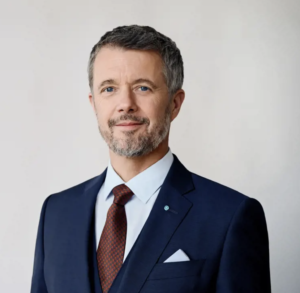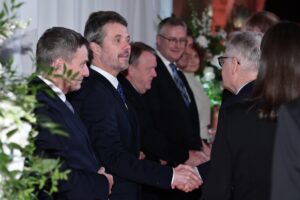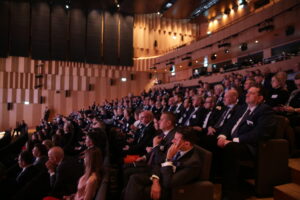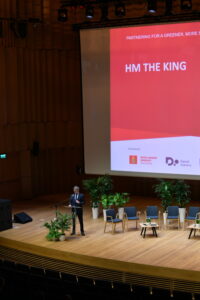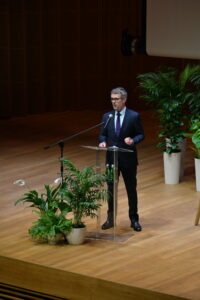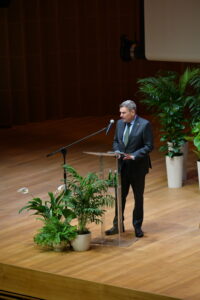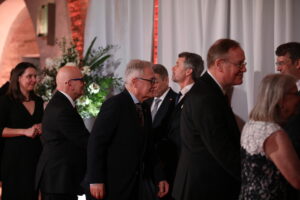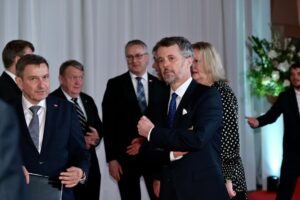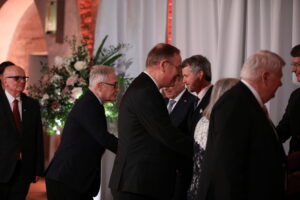SPCleantech participated in the Danish business visit
On 31 January to 1 February 2024, SPcleantech participated in HM The King Frederik X of Denmark official business promotional campaign visit in Poland. His Majesty was accompanied by Minister for Foreign Affairs Lars Løkke Rasmussen, Minister for Climate, Energy and Utilities Lars Aagaard and Minister for Food, Agriculture and Fisheries Jacob Jensen.
SPCleantech was invited to participate in this visit in Warsaw during the 2 days. CEO in the cluster, Janusz Kahl participated in several panels and meetings with the representatives of Danish industry. We hope for further cooperation with the Danish Partners.
The main topics of the Danish visit in Poland was Energy Efficiency which has come to play a pivotal role in securing energy supply, slashing energy prices, as well as supporting the green transition. This is reflected in new ambitious targets by the EU. The round table discussions were to focus on how the two countries can jointly accelerate the green transition via energy efficiency cross sectors. The discussions were focused on the strongest potentials and biggest challenges in the pursuit of energy security, climate action and growth, and how Denmark and Poland can collaborate to reach their energy efficiency goals.
The program started with a panel discussion on Danish and Polish learnings to shape a circular, climate-resilient future where the focus on efficiency, productivity and cross-sector collaboration towards carbon-neutral food production and decarbonized energy sector. A high level CEO pitch session with nine Danish companies pitching their take on three overall questions related to the theme of the Danish Royal Visit “Partnering for a greener, more secure tomorrow”. The panelists were CEOs from Carlsberg, Danish Crown, Vestjyllands Andel, Energinet, Nature Energy, European Energy, Danfoss, ISS and Rambøll.
The other interesting for SPCleantech topic was Biogas. The need to replace fossil fuels with renewable energy sources have become more pressing and gas shortages is forcing governments and business to find alternatives to fossils fuels to provide sufficient energy. Here, Denmark’s biogas sector is forefront when it comes using organic waste from the agricultural sector, but also from food industries or households and restaurants into an alternative energy source. Poland’s strong agriculture offers opportunities yet do not have the same traditions for alternative energy solutions. How can Danish biogas solutions support Poland’s goal to provide green gas?
The Theme for this panel was:
How could the Danish lesson have learnt to contribute to Poland’s green transition and circular bio-economy? The panel discussed Denmark’s and Poland’s role in the agriculture and biogas contribution to the green transition of the energy sector and to the circular bioeconomy.
Poland’s Energy Security Challenge:
-
- Located at the center of an emerging energy security crisis.
- Tasked with decarbonizing energy and construction by 2050.
- Requires collaboration among various stakeholders.
- Danish “Green Together” Approach:
- Mirrored in Danish governmental strategies and business alliances.
- “Green together” as the theme for the upcoming Royal Visit.
- Leveraging Poland’s Energy Landscape:
- Danish stakeholders can support Poland’s ambitious energy goals.
- Focus on energy efficiency as a priority in decarbonization.
- Danish Expertise Showcased During Royal Visit:
- Opportunity for Danish businesses to exhibit energy efficiency and decarbonization expertise.
- Strengthen bilateral business partnerships between Poland and Denmark.
- Creating Net-Zero Cities:
- Introducing a range of Danish solutions for “net-zero” powered cities.
- Alignment of Danish know-how with Poland’s energy efficiency objectives.
- Key Objectives of the Visit:
- Comprehensive ecosystem of solutions for sustainable development.
- Strengthening connections between Danish delegates and Polish stakeholders.
- Focal Points of Collaboration:
- Energy-efficient building decarbonization.
- Low-temperature district heating solutions.
- Smart industry solutions to tackle excess heat.
- Circular economy integration in construction.
- Green urban planning strategies.
- Infrastructure development for energy transmission.
- Enhancing Poland’s Energy Transformation:
- Roundtable discussions, networking events, conferences, and site visits.
- Danish companies contributing to Poland’s energy transition journey.



